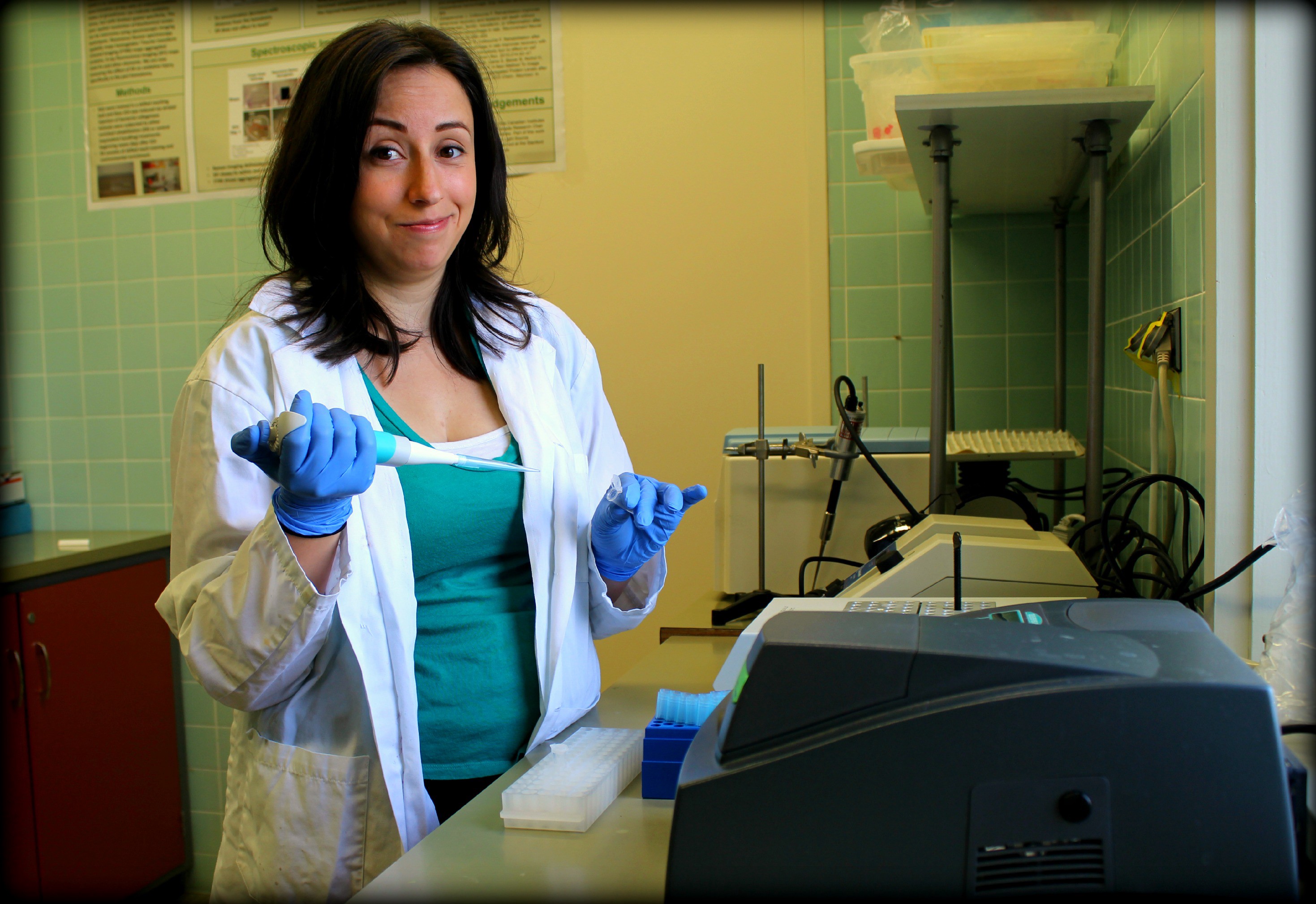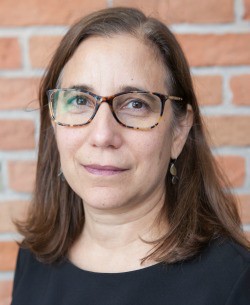
In 1995, my Bubby came to me and asked, "my arm is sore, can you help me? No? Then why do they call you a 'doctor?'" For those who haven't met me, my area of expertise is in Medical Microbiology & Immunology; I am a doctor, but not the kind of doctor that my Bubby had in mind when asking me about her sore arm. In that moment, what could I have said to help this keenly intelligent woman understand what doctoral training in immunology meant that I knew and was able to do.
This is a question that I'm sure all academics - regardless of discipline - face at one point or another: how can I best describe my graduate degree and its employability? Discussions around this very question have permeated my time as a student, a postdoctoral fellow, and as the coordinator of a graduate program in the life sciences field. And today, I find myself still engaged in these discussions, but now they involve two U of A efforts that are being developed to make the conversation around graduate degrees and employability easier for the next generation. These programs are PhDiversification project, run through the Faculty of Graduate Studies & Research, and the Learning Outcomes Initiative that's been spearheaded by the Office of the Provost. And the question I want you to consider is: should we bring these two separate initiatives together in a purposeful and deliberate way?
Two years ago, the University of Alberta was awarded a grant from the Government of Alberta to improve employment outcomes for graduate students. The Faculty of Graduate Studies and Research (FGSR) was given the responsibility to manage the funds. This gave FGSR an opportunity to explore the PhD journey through a different lens - the diversification of the credential. The PhDiversification project (as it was named) is focused on a rethink of how we prepare doctoral students in their programs for future employment in the broadest sense. And the Learning Outcomes Initiative involves engaging our community to discuss and implement learning outcomes for courses and programs.
In my time working with them, I've found that "Diversifying the PhD" and "Learning Outcomes" can raise some discomfort members of our faculty. Perhaps it feels threating to our sense of self-worth as highly independent and intrinsically motivated individuals to think the traditional PhD is not "the be all and end all" of an educational experience. Are we overwhelmed by the idea of training in areas we were never trained in?
Challenged by various stakeholders of postsecondary education to justify the value of graduate degrees, having tangible learning outcomes that enable graduates to translate the experience and development from their program into the skills and attributes to put on a resume seems like a no brainer. Why not at the same time consider diversifying and reimagining doctoral training through the lens of learning outcomes?
After all, learning outcomes are simple statements of what the learner knows and is able to do following a lesson, course, training activity or program. I am something of a zealot on the topic of articulating learning outcomes for thesis-based programs to bridge graduate education to the wider world. I also see them as being a necessary part of any healthy learning environment. Especially at the doctoral level where most - and sometimes all - of the formative activity occurs outside the traditional or even virtual classroom. After all, how can one not appreciate the value of clear and transparent statements of what someone knows and is able to do upon completion of program X compared to program Y? As pet peeves go, one very near the top of my list is happens when someone says something along the lines of "well, we all agreed after the Candidacy exam the candidate is just not performing at a PhD level, but we have no concerns with them completing a master's." And when asked to define what the difference is, the response is "come on, we all know what we mean by that?" Do we? All of us? Even the students?
My own first encounter with learning outcomes was as an external reviewer for a thesis-based graduate program in an Ontario university. Ontario's quality assurance system had just mandated the requirement for statements of program level learning outcomes. The self-study documents included a lucid table mapping the elements of the program to the Canadian Degree Qualifications Framework . I was struck by how much it assisted me as a reviewer. Not long after, I was tasked with writing a self-study for our graduate program. I wondered if mapping our master's and PhD program onto the credential framework would be useful for our reviewers. I sensed we had them, we had just not written them down. I expected heated debate when I presented my draft of learning outcomes to my department, but oddly the response I received was a simple "looks good." BUT in my mind the learning outcomes were remarkably narrow in scope and perhaps even dated. No overt project management, no collaboration, no teamwork, no leadership, no systems level analysis, no communication to a lay audience. Moreover, they contained no sufficient clarity on how we assessed student abilities and had no mechanism to determine if our methods were the best to achieve the outcomes we stated. Adding in more specific learning outcomes could only improve a bourgeoning academic's ability to better articulate their skills, thereby making it easier for them to explain what they do. And that would have to make it easier for them to describe their own employability to others.
So what would I say to my Bubby? "Well, Bubby, I can't write you a prescription, but I do know why your arm is sore. You just had your flu shot and the soreness means your body is responding properly to the vaccine. Do you want me to explain more?"
As part of the continued efforts to support work around learning outcomes, you are invited to attend a presentation by Dr. Brenda Brouwer, Vice-Provost and Dean of the School of Graduate Studies at Queen's University. Dr. Brouwer promotes and supports the graduate mission of Queen's University providing both academic and administrative leadership. She has been instrumental in the expansion of graduate credentials and the establishment of policies and best practices that support graduate students. Dr. Brouwer's presentation will focus on learning outcomes within the context of graduate-level studies.Dr. Brenda Brouwer, Vice-Provost and Dean of the School of Graduate Studies at Queen's University. Dr. Brouwer promotes and supports the graduate mission of Queen's University providing both academic and administrative leadership. She has been instrumental in the expansion of graduate credentials and the establishment of policies and best practices that support graduate students. Dr. Brouwer's presentation will focus on learning outcomes within the context of graduate-level studies.
Friday, March 16 | 9:30-10:50 a.m. | L1-190 Edmonton Clinic Health Academy (ECHA)
RSVP OnlineRSVP Online
Debby Burshtyn - Vice Dean, Faculty of Graduate Studies & Research

Since July 2016, Debby Burshtyn has been Vice Dean FGSR overseeing new program development, policy and governance and leads the FGSR's efforts on Learning Outcomes. She is a Professor of Medical Microbiology and Immunology and former CIHR - Lougheed Fellow and AHFMR Senior Scholar.